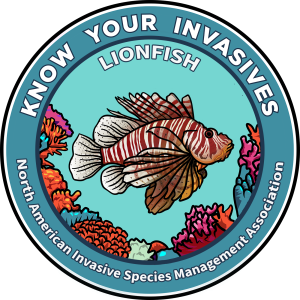Photo Above: Shelter Bay pier on Arrow Lakes Reservoir, tested bi-weekly for invasive mussels, none found in 2020 (Photo: CSISS).
The staff and board of the North American Invasive Species Management Association review invasive species headlines each month. This helps us stay on top of trends and further our mission to support, promote, and empower invasive species prevention and management in North America. We then share invasive species news most relevant for people who manage terrestrial and aquatic invasive species across the the United States, Canada, Mexico and the world.
Success Stories: Prevention, Eradication and Restoration
Columbia Shuswap Region is Invasive-Mussel-Free for Another Year
British Columbia — Read Press Release
In a recent statement, the Ministry of Environment and Climate Change Strategy reported that 89 waterbodies in BC were monitored throughout the season by 12 grant recipients (including the Columbia Shuswap Invasive Species Society) and Ministry staff, collecting 954 plankton samples, all of which showed no evidence of invasive mussels.
Experts Suggest Controlled Burns and Timely Grazing Curtail Many Invasive Plants
Kansas – Read on The Hutchinson News
By using controlled burns, specific grazing methods and friendly insects, researchers across Kansas are seeing the benefits of instituting well-known practices alongside modern herbicides.
Asian Carp Goes from Water to Dog Dishes
Montreal – Read on Great Lakes Echo
A new dog food formula includes Asian carp, an invasive species in both the United States and Canadian waterways.
Prevention, Outreach and Education
Western Governors Association Launches Invasive Species Data Mobilization Campaign
Western U.S. — Read on WGA
The Invasive Species Data Mobilization Campaign of the Western Governors’ Association seeks to encourage national, state, and local land managers, private landowners, and non-governmental organizations to enter previously unavailable data into new or existing invasive species data management platforms using recommendations developed by WGA and invasive species data experts.
Updated Recommendations for the Quagga Zebra Action Plan for Western U.S. Waters
Western U.S. — Read on Western Regional Panel
The purpose of The Updated Recommendations for the Quagga Zebra Action Plan for Western U.S. Waters is to provide a systematic and unified approach to prevent the spread of zebra and quagga mussels into and within the western US in the future. These recommendations are intended to inform decision‐making to provide increased capacity and clear direction that empowers the further implementation of a collaborative multi‐jurisdictional regional strategy to prevent the spread of quagga and zebra mussels in the West.

New Research
A New Study Shows How Invasive Species Change During Biological Invasion
Read on Phys.org
This finding thus questions the interpretations of previous studies and opens up the possibility of new management strategies to combat the negative impacts of invasive species.
Detection, Management and Control
Lakes Drawdown Aims to Freeze out Invasive Plants
Wisconsin — Read on the Royal Purple
Eurasian Water Milfoil and Coontail are target species in this aquatic invasive species management method.
Ice Fishers Asked to Prevent Spread of Aquatic Invasive Species
Minnesota — Read on Willmar Radio
Zebra Mussels, Eurasian Water Milfoil and other invasive species can still be easily spread during ice fishing.
New Species of California Tumbleweed Rolls into Town, Weighing 13 Pounds, Standing 6 Feet Tall
California — Read on Desert Sun
The relatively new hybrid tumbleweed is Salsola ryanii. Aside from its size, the new weed looks just like but dwarfs its nearly identical parent species, Salsola australis and Salsola tragus (commonly known as Russian thistle).

This Ferocious Water Flea is Mauling the Great Lakes
Great Lakes — Read on National Geographic
The spiny water flea is rattling the Great Lakes ecosystem.
Another Invasive Mosquito Species Arrives in Florida
Florida – Read on Entomology Today
Aedes scapularis is a mosquito that can spread yellow fever, Venezuelan equine encephalitis virus, and other human pathogens. It has a wide range, from Texas to parts of South America and throughout much of the Caribbean.
Policy and Rulemaking
U.S. Fish and Wildlife Service and NOAA Fisheries Finalize Regulatory Definition of Habitat Under Endangered Species Act
Conversations
The Virus, the Bats, and Us
North America – Read on The New York Times
Bats are too important to lose, yet they are being lost in many parts of the world, because of habitat destruction and direct killing — and, at a cataclysmic rate in North America over the past 14 years, because of a new problem: a contagious disease.
How Non-Native Plants Are Contributing to a Global Insect Decline
North America – Read on Yale E360
Dozens of recent studies have provided evidence that supports Doug Tallamy’s hotly disputed hypothesis.
Want more Invasive Species News? Support our work by joining NAISMA.



